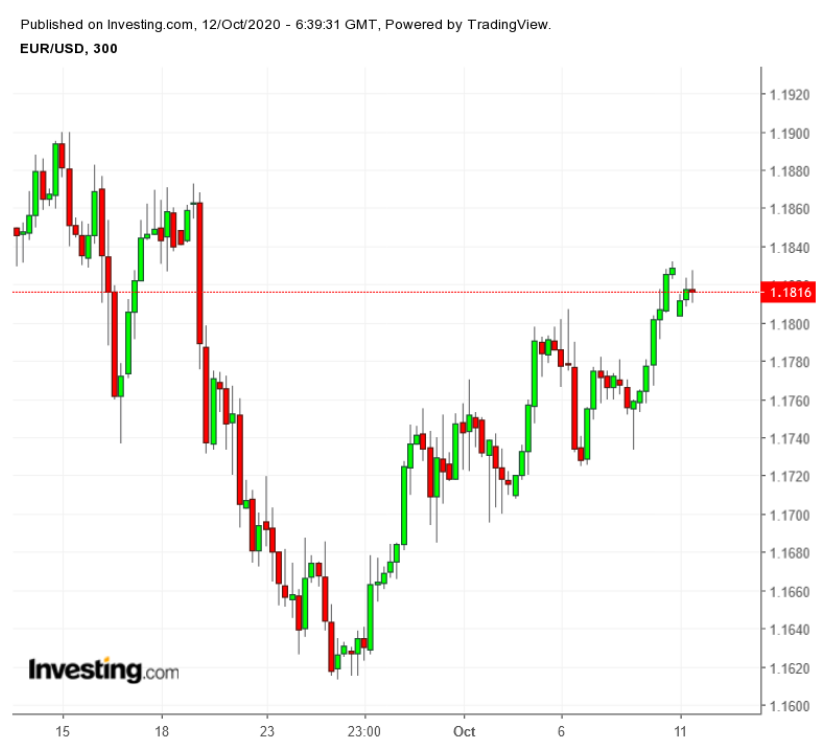“Free hand” was the phrase that jumped out to investors in the minutes from the September meeting of the European Central Bank policymakers released Thursday.
Given the uncertainty of the pandemic’s course and its impact on economic recovery, the central bankers in the governing council want to have a “free hand” so they can take appropriate action as needed.
Investors have rightly interpreted that as meaning there’s a good chance the ECB will be pushing out more stimulus later this year.
Uncertainty Assured Whether Elevated, Heightened Or Considerable
The leitmotif in the minutes was “uncertainty,” almost invariably modified as “elevated,” “heightened,” “high,” or “considerable.” Economists noted that in the past an emphasis on uncertainty—a word appearing some two dozen times in the minutes—often indicated the ECB is planning more stimulus.
The Financial Policy Committee at the Bank of England was similarly cautious in its statement last week. While relatively sanguine about the impact of Brexit on financial stability, the 13 council members were more concerned about the impact of COVID-19 and geopolitical tensions.
Global activity has picked up from the trough of the coronavirus pandemic, but the path forward remains “highly uncertain,” the FPC commented.
“The committee noted that the risks to UK financial stability would also depend on geopolitical developments,” the statement continued.
“In particular, against the backdrop of COVID-19-related uncertainty, an intensification of geopolitical tensions could lead to a deterioration in risk sentiment and volatility in financial markets.”
The committee—consisting of the top officials of the Bank of England, regulators, and a handful of outside experts—singled out trade tensions between the US and China and the presidential election in the US as worrying unknowns.
Central bankers, in short, don’t have a crystal ball and are leery of going out on a limb in the current environment. The resurgence of COVID-19 infections in Europe has dampened what seemed like a promising recovery.

The ECB council, for instance, seemed more worried about the effect of the euro exchange rate on inflation than President Christine Lagarde let on at her press conference after the meeting September 9-10.
“Given the openness of the euro area economy, members considered that a further appreciation of the exchange rate constituted a risk to both growth and inflation,” the minutes said.
Their problem with inflation, of course, is that it’s too low. The eurozone registered a minus 0.2% inflation in August, and negative inflation is likely to last through the end of the year, the minutes said. A high exchange rate not only dampens inflation, but lowers inflation expectations, which then can set off a downward spiral into deflation.
In her September press conference, Lagarde had taken on board some of chief economist Philip Lane’s points for public communication as outlined in the minutes, but seemed to forget others. Her upbeat assessment on the economy confused markets that had been expecting a more dovish tone.
In fact, Lane not only urged the ECB to say that ample monetary stimulus would remain necessary, but specifically to underline that “the governing council would monitor incoming information very carefully and continue to stand ready to adjust all of its instruments” to raise inflation—that is, to speed economic recovery.
The euro, which had declined below $1.17 in the wake of the September press conference, gained back some of that ground to cross the $1.18 threshold on the prospect of further monetary stimulus to the economy.
